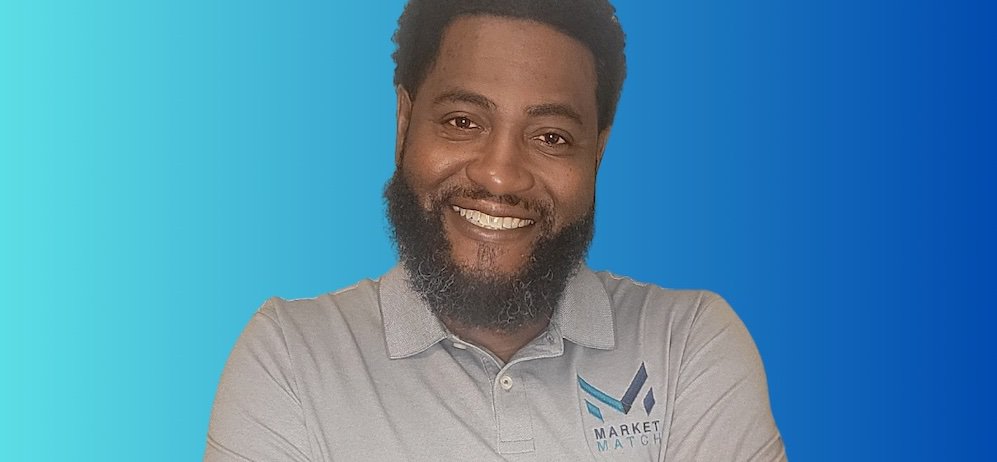When Demetrie King moved to Fort Worth three years ago, he brought with him an entrepreneurial streak that had followed him since childhood.
A veteran of sales and business development with stints across startups, corporate ventures, and real estate, King had always carried what he calls “an entrepreneur mindset.”
That instinct, combined with a vending machine side hustle in 2020, sparked the idea for what would eventually become Market Match — a software platform that turns market research into something fun and engaging, not to mention lightning fast.
“Market Match is a software platform that creates a fun way to do market research and surveys using swipe technology,” King said. “Whether it’s food, drinks, or events, you can survey a large crowd in advance and actually see what’s in demand before purchasing inventory.”
The concept began with a vending machine app King created in 2020 to gauge what snacks consumers wanted stocked. Early versions used a five-star rating system, but King quickly realized swipe technology — familiar to anyone who has ever used a dating app — offered a more intuitive and addictive experience.
By 2024, he rebranded the project as Market Match, broadening its potential beyond vending into colleges, coworking spaces, event venues, and retail.
“I’m a creative,” he said. “I didn’t create the app, I just gave the framework of what I would like, and then I had a team build it.”
Colleges have been King’s first proving ground. At TCU, market research showed that 86% of students and staff said they would use the software and would be more inclined to stay on campus and spend money on campus if they were provided the type of products and events that they actually were asking for.
King said the difference from traditional surveys has been dramatic. “From the market research we did at TCU, 86% of students and staff said they would use the software and would be more likely to stay on campus and spend money if they were offered the products and events they actually wanted.”
He also tested Market Match at TechFW’s monthly StartUp Bites program.
“I gave founders 30 topic options, 20 food choices, and several drink options. Everyone swiped in real time, and within a minute I could tell exactly which topics, foods, and drinks they wanted for future events,” he said.
Another case study came out of Chicago, where high school interns used the app to stock a snack station.
“All the people I was pitching it to told me, ‘This is gamifying surveys,’” King said. “It makes the process easy and quick, and it doesn’t feel like a test. The real value is in the backend, where we’re gathering collective data from everyone and seeing what most people prefer, then making decisions from that.”
For merchants and brands, that backend data is what makes Market Match impactful, King said. “Say I’m a Fort Worth beer company and I put 10 beers on the app for UTA students. After a week of swipes, I can see which beers that demographic prefers and even how long they lingered on each option. That’s the kind of data we’re delivering for brands.”
King, 40, has found fertile ground for his venture in Fort Worth. He’s a member of TechFW, Accelerate Fort Worth, and 1 Million Cups. He also co-hosts the Fort Worth Roots podcast.
“Fort Worth has been great with everyone wanting to collaborate,” said King, who this summer won first place and the People’s Choice Award in the Fort Worth Hispanic Chamber of Commerce Pitch Competition.
So far, Market Match is completely bootstrapped. King is seeking venture capital, but in the meantime, he’s growing through pilots with TCU, UT Arlington, coworking spaces like Spark Arlington, Ensemble Coworking, and Riverside Coworking. He’s also transitioning Market Match from a mobile app to a web-based version to reduce friction for new users.
King’s roadmap is clear: start with colleges, move into event spaces, and eventually expand into retail.
“This type of technology is going to give you the best bet to get your brand in the right place,” King said. “That way you can make some money, the merchant can be happy, and then the consumers will be grateful for a good experience.”
